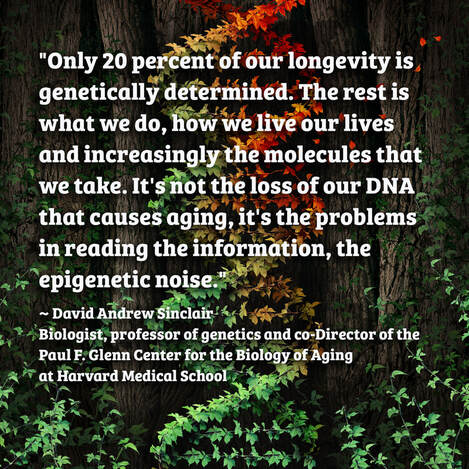|
Immune competence declines as we age and this can impair tolerance mechanisms and be a set up for autoimmune disease. Compared to younger individuals, elderly populations show an increased proliferation of naïve T cells in the periphery that can be functionally impaired. In addition, aging correlates with increased amounts of DNA in the circulation, which is also associated with autoimmunity.1 Naïve or native T cells are matured cells released by the thymus gland that recognize new antigens and initiate an immune response, allowing our systems to react to unfamiliar pathogens, infections and bacteria. Together with memory T cells, this prepares the immune system to encounter both known and unknown antigens.2 Aging is a complex process that results in loss of the ability to retain homeostasis or the balance of our physical processes following stress, which can then lead to an increased risk of morbidity and mortality. Many factors contribute to aging, such as the time-dependent accumulation of macromolecular damage, including DNA damage, telomere shortening, mitochondrial and metabolic dysfunction, reduction of autophagy, altered proteostasis, and oxidative stress and inflammation. DNA damage is a constant threat because nucleic acids are chemically unstable under physiological conditions and vulnerable to attack by endogenous and environmental factors. And these can all impact our genetic code, which is essentially our body’s “blueprint” for our lifetime functioning.3  Your grandmother’s role is just part of the DNA story. Heredity alone doesn’t solely determine your genetic code relevant to aging. Many environmental factors accelerate the process, including stress, pollution, lifestyle, injuries, disease, and exposure to toxins. Epigenetic (non-genetic influences on gene expression) changes also drive aging and reversal of these changes extend lifespan. Epigenetic control of gene expression occurs by chemical modification of DNA. By choosing an active lifestyle and decreasing harmful environmental factors, aging can be delayed. How to slow down the clock. While not a gerontologist, I do have extensive experience with the impacts of aging relevant to brain health and autoimmune-related neurological diseases. So, while science hasn’t identified the single means to stop or reverse aging, there are things we can do right now based on our individual health needs or conditions to affect some control over our own destiny:
Additional considerations for IVIG therapies. In my 20+ years of observation and clinical experience with the use of intravenous immunoglobulin (IVIG), I have noted what might almost be compared to the “Benjamin Button” concept whereby patients receiving these treatments seem to “age” well in many respects. Not to say that this type of protocol is an anti- or reverse aging tool. Rather, the multimodal mechanism of action that makes IVIG so effective in treating many autoimmune diseases also has been shown to exert therapeutic benefits via induction of autophagy in the immune cells.5 Autophagy is an important quality control mechanism to maintain cytoplasmic health and cellular homeostasis and is impaired during aging in various tissues.6 This leads to immunosenescence, the state of dysregulated immune function that contributes to the increased susceptibility of the elderly to infection and possibly to autoimmune disease as well as cancer. We know that immunosenescence is well underway as early as our 40s; for patients with diseases such as multiple sclerosis (MS), there can be further impacts to the immune system as a result of some therapies. However, since IVIG offers a safe and effective option for use in MS and many autoimmune diseases, by its process of action it may offset some of the damage from aging as well.  Some say that age is just a number, but the bigger question is how do we make the most of the years we are given in this lifetime? The answer is naturally different for each of us. My own grandmother, who lived to be 101, may indeed have had the innate foundation of good health in her unique genetic code. But, perhaps just as important, she built on that foundation with a commitment to having a purpose each day. One of her frequently used Czech expressions was “Zivijio” (which means “to long life”), but it wasn’t just something she said. It was something she lived with joy and a positive state of mind that she thankfully passed on to us too! In hope and health, Dr. Suzanne Gazda References and additional reading: 1 Foley, J.F. Cytoplasmic DNA sensing by the KU complex enhances CD4+ T cell activation and contributes to aging-induced autoimmunity. Science Signaling. (2021). https://stke.sciencemag.org/content/14/679/eabj0430.full 2 Kumar, B.V., Connors, T.J., Farber, D.L. Human T Cell Development, Localization, and Function throughout Life. (2018) Cell.com. https://doi.org/10.1016/j.immuni.2018.01.007 https://www.cell.com/immunity/comments/S1074-7613(18)30028-1 3 Institute on the Biology of Aging and Metabolism Department of Biochemistry, Molecular Biology and Biophysics, University of Minnesota, United States eLife 2021;10:e62852 DOI: 10.7554/eLife.62852 4 Epel E, Daubenmier J, Moskowitz JT, Folkman S, Blackburn E. Can meditation slow rate of cellular aging? Cognitive stress, mindfulness, and telomeres. Ann N Y Acad Sci. 2009;1172:34-53. doi:10.1111/j.1749-6632.2009.04414. https://www.ncbi.nlm.nih.gov/pmc/articles/PMC3057175/ 5 Das, M., Karnam, A., Stephen-Victor, E. et al. Intravenous immunoglobulin mediates anti-inflammatory effects in peripheral blood mononuclear cells by inducing autophagy. Cell Death Dis 11, 50 (2020). https://doi.org/10.1038/s41419-020-2249-y https://www.nature.com/articles/s41419-020-2249-y 6 Hanlin Zhang, Daniel J. Puleston, Anna Katharina Simon. Autophagy and Immune Senescence, Trends in Molecular Medicine, Volume 22, Issue 8, 2016, Pages 671-686, ISSN 1471-4914, https://doi.org/10.1016/j.molmed.2016.06.001. https://www.sciencedirect.com/science/article/pii/S1471491416300491 Bolton, C. An evaluation of the recognised systemic inflammatory biomarkers of chronic sub-optimal inflammation provides evidence for inflammageing (IFA) during multiple sclerosis (MS). Immun Ageing 18, 18 (2021). https://doi.org/10.1186/s12979-021-00225-0
0 Comments
Your comment will be posted after it is approved.
Leave a Reply. |
AuthorDr. Suzanne Gazda, Integrative Neurology Archives
February 2024
Categories |

 RSS Feed
RSS Feed